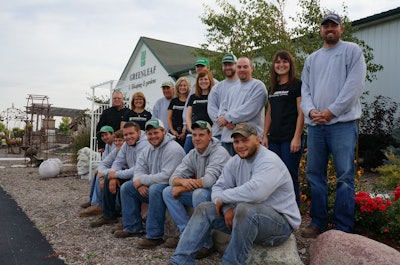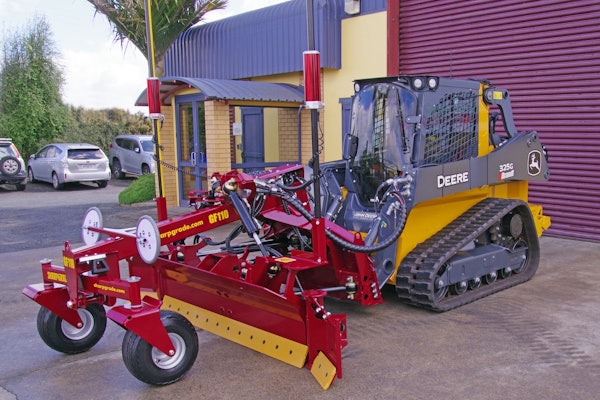
Greenleaf Landscaping & Gardens employees think like owners and come up with creative solutions.
Photo: Marcia Gruver Doyle
Finding hard-working employees for your landscaping business is hard enough, but finding some who will stick around long term can be even harder.
As chatting with your competitors would confirm, even when you are offering great pay, some of your workers won’t stay. You can blame it on generational differences or you can make some changes in your company that will make them more likely to remain.
Provide growth
No one wants to work at a dead-end job. Make sure that your employees see that there is a clear path for moving up in terms of pay, position or both. They need something to work for and they need to know that there is a career at your company.
Providing opportunities for all your workers to move up will make them more inclined to work harder because they will see there is an actual goal.
Shayne Newman, the owner of YardApes in New Milford, Connecticut, works hard to spell out career paths by using a bulletin board in the break room, where he tracks employees’ progress with magnets.
“Everything is spelled out, including job descriptions and career paths,” Newman says. “If you want to become a manager, there’s a specific path to follow. There’s no favoritism or job confusion; everything is right out front.”
Give them cross-training
It doesn’t take a rocket scientist to know how to mow lawns and pull weeds, so if you don’t want your employees getting burnt out on a job that is mundane, mix up their duties so that they can learn some new skills. Once they have become competent in that new skill, you have a worker who can do more than one thing.
For example, instead of having one laborer who is your expert hardscaper, your entire crew can learn from him. That way, you are not at a loss when he decides to retire one day. Your other crew members have learned his methods and can now tackle more diverse tasks.
Also, with cross-training, you are showing that you trust that workers are competent to learn and perform new duties responsibly. Cross-training is especially important if you have a small business and are trying to make the most of your workforce.
Tell them thank you
Don’t assume that your employees know you appreciate their work just because you sign their paychecks. People desire respect and want to know they are valued.
“It may seem like a small thing, but saying ‘thank you’ for a job well done goes a long way,” says Tony Bass, president of Super Lawn Technologies.
For some companies, this may take the form of ice cream on a hot day or taking the crew out to lunch, or more elaborate activities such as cookouts and softball games. Whatever you choose to do to express your gratitude will also help build a sense of affection and loyalty toward your company, as employees see you truly care.
Ask for their feedback
If you want your workers to become invested in your business, give them an opportunity to share their feedback. They see things from a completely different perspective and may surprise you by pointing out a potential source of revenue that isn’t being explored.
When there is an issue with a customer, take time to get both sides and ask the employee how they think the situation should be resolved rather than simply issuing a mandate without their input.
Many employees leave because of a manager issue, so provide them a channel to share their concerns before they give up and quit.
“People are motivated by kindness and feeling connected,” says Jerry Gaeta, business consultant and landscaping industry veteran. “If they leave for a few more cents per hour, it’s something you need to look at in your organization.
“You can’t buy loyalty with money, but you can empower your employees and give them the tools for success. That’s going to pay off for everyone.”









